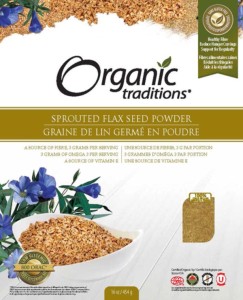According to the U.S. Centers for Disease Control and Protection:
- CDC recommends that consumers do not eat any products produced by Wholesome Soy Products, Inc. Restaurants and retailers should not sell or serve them.
 On August 28, 2014, Wholesome Soy Products, Inc. conducted a voluntary recall of mung bean sprouts due to possible Listeria monocytogenes contamination after FDA isolated the pathogen from samples as a result of a routine assignment.
On August 28, 2014, Wholesome Soy Products, Inc. conducted a voluntary recall of mung bean sprouts due to possible Listeria monocytogenes contamination after FDA isolated the pathogen from samples as a result of a routine assignment.- During FDA inspections of the Wholesome Soy Products, Inc. facility in August and October 2014, investigators observed unsanitary conditions, many of which were present during both inspections.
- Whole genome sequences of the Listeria strains isolated from mung bean sprouts produced by Wholesome Soy Products, Inc. and environmental isolates collected at the production facility were found to be highly related to sequences of Listeria strains isolated from five people who became ill from June through August 2014.
- These five ill people were reported from two states: Illinois (4) and Michigan (1).
- All ill people were hospitalized. Two deaths were reported.
- The two people interviewed reported eating bean sprouts.
The U.S. Food and Drug Administration (FDA) isolated Listeria monocytogenes from mung bean sprouts and sprout irrigation water samples obtained during a routine assignment on August 13, 2014, at Wholesome Soy Products, Inc. Based on this finding, FDA conducted an inspection of the facility from August 12, 2014, through September 3, 2014, and isolated Listeria monocytogenes from 25 environmental swabs obtained during the inspection. FDA also issued a report with 12 inspectional observations, citing the firm for numerous unsanitary conditions and poor equipment maintenance.
On August 28, 2014, Wholesome Soy Products, Inc. agreed to conduct a voluntary recall of mung bean sprouts and notified customers by telephone. Wholesome Soy Products, Inc. ceased production of sprouts on August 28, 2014, and resumed production on September 15, 2014 after Listeria monocytogenes was not identified in finished product. From October 7, 2014, to October 31, 2014, FDA re-inspected the facility and identified Listeria monocytogenes in nine environmental swabs. FDA investigators issued another report to the firm, noting 12 inspectional observations involving unsanitary conditions and poor equipment maintenance. Nine of these observations had persisted from the previous inspection.
On October 14, 2014, Wholesome Soy Products, Inc. ceased production of all products except mung bean and soy bean sprouts. FDA is working with the company to ensure that they do not produce sprouts until FDA has adequate assurances that this persistent and dangerous strain of Listeria monocytogenes is sufficiently controlled. Illinois Department of Public Health (IDPH) is working to embargo all product at Wholesome Soy Products, Inc. and the other wholesalers that presently have product. In addition, IDPH has asked local health departments to contact facilities in their jurisdictions that have received the product to have the facilities either hold the product or destroy per the CDC recommendations.
FDA performed pulsed-field gel electrophoresis (PFGE) and whole genome sequencing (WGS) on the isolates from mung bean sprouts and environmental samples from Wholesome Soy Products, Inc. to further characterize the Listeria isolates. Compared with PFGE, WGS provides a clearer distinction of genetic differences among Listeria isolates (strains that are highly related by WGS are more likely to have a common source).
Public health investigators used PFGE and WGS to identify cases of illness that were caused by highly related strains and therefore possibly related to products made at Wholesome Soy Products, Inc. This included data from PulseNet, the national subtyping network of state and local public health laboratories, CDC, and federal food regulatory laboratories that perform molecular surveillance of foodborne infections.
Whole-genome sequences of Listeria strains isolated from five ill people were found to be highly related to sequences of the Listeria strain isolated from mung bean sprouts produced by Wholesome Soy Products, Inc. These ill people have been reported from two states: Illinois (4) and Michigan (1). They became ill from June through August 2014. All five people were hospitalized, and two deaths were reported. Two of the five people were interviewed, and both reported consuming bean sprouts in the month before becoming ill.
The high degree of genetic similarity between isolates from ill people and from mung bean sprouts and environmental samples collected at Wholesome Soy Products, Inc. shows that the food was contaminated with a strain of Listeria monocytogenes that can cause serious illness. Although limited information is available about the specific sprout products that the ill people consumed, the whole genome sequencing findings, together with the sprout consumption history of two patients and inspection findings at the firm, suggest that these illnesses could be related to products from Wholesome Soy Products, Inc.
CDC, the states involved, and FDA continue to work closely on this ongoing investigation, and new information will be provided when available.
We document at least 55 sprout-associated outbreaks occurring worldwide affecting a total of 15,233 people since 1988. A comprehensive table of sprout-related outbreaks can be found at https://barfblog.com/wp-content/uploads/2014/08/Sprout-associated-outbreaks-8-1-14.xlsx.

 The Concern: While it’s been more than 10 years since the Food Allergen Labeling and Consumer Protection Act went into effect, unlabeled allergens—most often peanuts, tree nuts, wheat, soy, dairy, fish, shellfish and eggs—are still the number one cause of recalls for FDA-regulated foods. And they often crop up unannounced in bakery products.
The Concern: While it’s been more than 10 years since the Food Allergen Labeling and Consumer Protection Act went into effect, unlabeled allergens—most often peanuts, tree nuts, wheat, soy, dairy, fish, shellfish and eggs—are still the number one cause of recalls for FDA-regulated foods. And they often crop up unannounced in bakery products.













